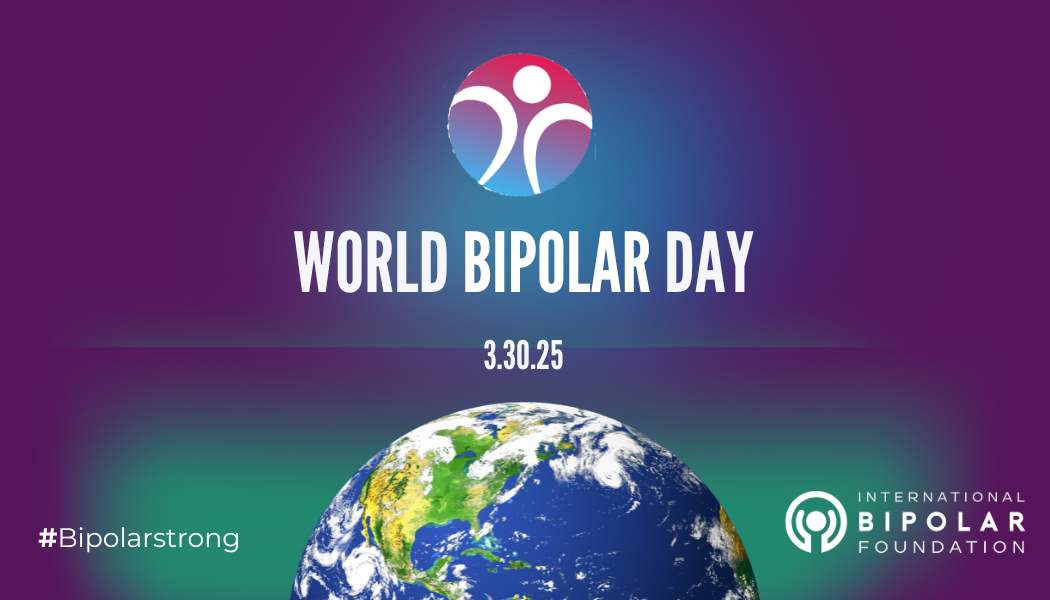Celebrating Tom’s Strength 💪
When I experienced my first manic episode, I didn’t see it coming. I don’t think many people do. I had been dealing with a diagnosis of Major Depressive Disorder since I was a teenager and had never even considered I might be bipolar. It started as a hum of energy, a lightness in my limbs, a sense that the world had sharpened into something clearer, brighter. I was unstoppable. Sleep felt unnecessary, food an afterthought. My mind moved faster than my body could keep up. At first, it felt like a gift—a rare clarity, a heightened sense of purpose. Then the euphoria stretched thin. Nights blurred into one another, my thoughts racing too quickly for rest, a constant stream of motion in my head. Three days without sleep. I ignored hunger, ignored the warning signs that my body was wearing down. I was invincible—until I wasn’t. As paranoia turned into psychosis, I found myself on an involuntary hold, dragged out of my home handcuffed to a gurney.
Hospitalization. The word itself carried the weight of failure, of losing control in the most public, undeniable way. At that point, in the bowels of a psychiatric hospital, as the doctor gave me my new diagnosis of bipolar I, I faced a stark choice, one that many in my position are put in, to believe what I am being told or reject the diagnosis and carry on as I was. I am thankful every day that I chose the former option, to embrace this whole new side of myself that had always been there. I chose to turn this lowest point into something else entirely. After the hospital, there was no going back to pretending. No rewinding to the version of me that could keep my struggles tucked neatly out of sight. I had been seen—completely, undeniably—and I had a choice: I could try to minimize it, explain it away, or I could be open about what had happened. I chose openness.
At first, I expected hesitation, discomfort, maybe even distance. But instead, I was met with love, compassion, and an understanding that felt almost surreal. The people who mattered didn’t recoil. They didn’t treat me like I was fragile or broken. Instead, they stayed. They listened. They asked what I needed.It was eye-opening in ways I hadn’t expected. Some people I had assumed would be there quietly faded away, their absence speaking louder than words. And yet, others—people I wouldn’t have thought to lean on—stepped up in ways that stunned me. They held space for me, reminded me that I was still me, still whole, still worthy of care.This experience changed the way I saw relationships. My inner circle isn’t bound by blood; it’s chosen. And that choice had never felt more validated. The people I had chosen were exactly the right ones. They have remained by my side, not just in the aftermath but in the long stretch of days and months that followed, in the quieter struggles that don’t come with dramatic turning points. They are there not out of obligation, but because they want to be. That realization gave me a confidence I hadn’t had before. If I could be fully seen—at my lowest, at my most vulnerable—and still be accepted, what was there to fear?
Over the past year, I’ve leaned into that openness. It started small—a post on Instagram, a fundraiser for mental health charities. Little gestures that felt both terrifying and necessary. And then, slowly, I started sharing more. Not just in passing, not just in private, but in a way that invited conversation. In a way that said, I see you. If you’re struggling, you’re not alone. The most unexpected part? People responded. Not just with support, but with their own stories.
Friends who had never spoken about their own struggles before started opening up to me. Strangers reached out, saying they felt less alone. And, for the first time, I had the chance to be there for others the way people had been there for me. I’ve learned that vulnerability isn’t just about being seen—it’s about making space for others to step forward, too. And in doing so, I’ve built something stronger than I ever could have imagined. Bipolar disorder has tested me in ways I never could have anticipated, but it has also given me something invaluable: resilience. I have faced my worst moments, survived them, and come out the other side stronger. That strength, combined with the stability that proper medication and therapy has given me, has reshaped how I see myself.
I no longer fear my own mind. I am beginning to understand it better than I ever have. I know what I need, what my limits are, and how to care for myself in a way I never did before. And in trusting myself, I’ve learned to trust others, too. My relationships are deeper, not because they are free of hardship, but because they are built on honesty. I no longer carry the weight of pretending to be someone I’m not. And in letting go of that, I’ve stepped into something I never expected—confidence. Not just in my survival, but in my ability to truly live.
#Bipolarstrong 🌍
The content of the International Bipolar Foundation blogs is for informational purposes only. The content is not intended to be a substitute for professional medical advice, diagnosis, or treatment. Always seek the advice of your physician and never disregard professional medical advice because of something you have read in any IBPF content.


